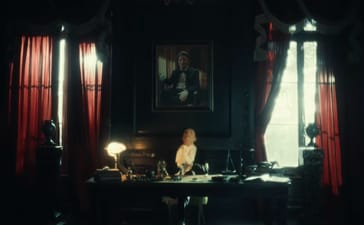The death of former My Chemical Romance drummer Bob Bryar has sparked an outpouring of mixed emotions across the alternative music community.
For fans of the band’s ‘Three Cheers for Sweet Revenge’-to-‘The Black Parade’ era, his thunderous drumming remains an integral part of the group’s most iconic moments. Yet, Bryar’s later years—a period marked by personal struggles, hateful rhetoric, and growing isolation—have left many grappling with how to remember a figure who was both celebrated and condemned.
Following his passing, My Chemical Romance released a statement through a spokesperson: “The band asks for your patience and understanding as they process the news of Bob’s passing.” It was a carefully worded response that reflected the complexity of the situation—a recognition of Bryar’s role in the band’s history while leaving room for the mixed legacy he left behind.
Bryar’s contributions to My Chemical Romance during their meteoric rise from emo darlings to arena rock icons are undeniable. His tenure saw the band release some of their most influential work, and his performances helped define a sound and spirit that shaped a generation. But his departure signalled the beginning of a downward spiral, one that would see him retreat from music, battle with mental health issues, and alienate fans through a series of transphobic and racist statements online.

Rising Fame: Contributions to My Chemical Romance
Bob Bryar joined My Chemical Romance in 2004, stepping into the drummer’s seat during a transformative period for the band. His precise yet powerful drumming helped propel the group’s sound into darker, more ambitious territory, culminating in the release of their magnum opus, ‘The Black Parade’. Tracks like ‘Welcome to the Black Parade’ and ‘Famous Last Words’ showcased Bryar’s ability to balance intricate rhythms with raw emotional energy, cementing his place in the band’s most celebrated lineup.
Fans recall Bryar’s commanding presence on stage and his sharp wit off it, traits that endeared him to a generation that saw My Chemical Romance as more than just a band—they were a lifeline. From explosive live performances to the iconic 2005 MTV VMAs, where Bryar’s kit thundered through a confetti-soaked set, he helped craft moments that remain etched in alternative music history.
But as the band’s star rose, cracks began to form behind the scenes.

The Departure: A Turning Point
By 2010, tensions within the band culminated in Bryar’s sudden and unexplained departure. While the specifics remain a closely guarded secret, band member Frank Iero later described the decision as “painful” but necessary. For Bryar, it was a devastating blow. In a since-deleted tweet from 2015, he reflected on his struggles at the time, writing, “After being kicked out of MyChem, I became the most depressed, angry, suicidal person ever.” However, Bryar also spoke openly about taking steps to manage his mental health, later sharing, “Now I am on so many pills that I feel a bit better, although it still bothers me every day.”
His public reflections hinted at an ongoing battle with both the loss of his role in the band and the inner turmoil it left behind. Despite these admissions, Bryar’s bitterness occasionally surfaced, further straining his relationship with both the band and the fans.

The Later Years: Controversies and Fallout
In the years that followed, Bryar seemed to retreat further into isolation. Though he remained active online, his social media presence became increasingly polarising. His MAGA-aligned rhetoric, paired with hateful tweets—including his use of slurs and his dismissal of social movements—alienated many of the fans who once celebrated him. The same man who once raised funds for animal rescue and spoke openly about his mental health struggles now seemed defined by anger and divisive ideologies.
For many, this side of Bryar was irreconcilable with the man they once admired. One fan commented, “Bob Bryar’s words and actions were inexcusable. Mental illness doesn’t excuse bigotry, but no one deserves to die the way he did.” Another added, “He contributed to iconic records but said terrible things. Both can be true.”
Fan Reactions: Grief, Accountability, and Division
The reaction to Bryar’s passing reflects the complexities of fandom in the digital age. Some mourned the drummer who was a part of their formative years, while others struggled to reconcile his artistry with his actions. The discovery of his body—alone and decomposed, with his dogs still in the house—underscored the tragedy of his isolation. “It’s okay to grieve him while acknowledging that he wasn’t a saint,” wrote one fan. “Mental health doesn’t absolve you of the harm you cause, but his death is still heartbreaking.”
This division among fans mirrors broader societal conversations about the separation of art from the artist. Bryar’s time with My Chemical Romance left an undeniable mark on the alternative music scene, but his later years serve as a sobering reminder of how unchecked mental health struggles, isolation, and hateful ideologies can overshadow even the brightest legacies.
While the cause of death has not been confirmed, the circumstances surrounding Bryar’s passing have led many to reflect on the challenges of mental health and the importance of seeking support.
Conclusion: A Nuanced Reflection
Bob Bryar’s story is one of highs and lows—a legacy shaped by both his significant contributions to one of the most influential bands of the 2000s and the troubling controversies that followed. His passing underscores the urgency of addressing mental health struggles and fostering accountability within the music community.
As fans and artists navigate the complexities of life and legacy, Bryar’s journey serves as a poignant reminder of the importance of seeking help and supporting one another. Conversations about mental health, inclusion, and resilience can create a stronger, more compassionate community—one that ensures no one feels they must face their struggles alone.



Need to talk to someone?
If you or someone you know is struggling, help is available:
- Lifeline Australia: Call 13 11 14 or visit www.lifeline.org.au
- Beyond Blue: Call 1300 22 4636 or visit www.beyondblue.org.au
If this article has raised concerns for you, please reach out for support.










